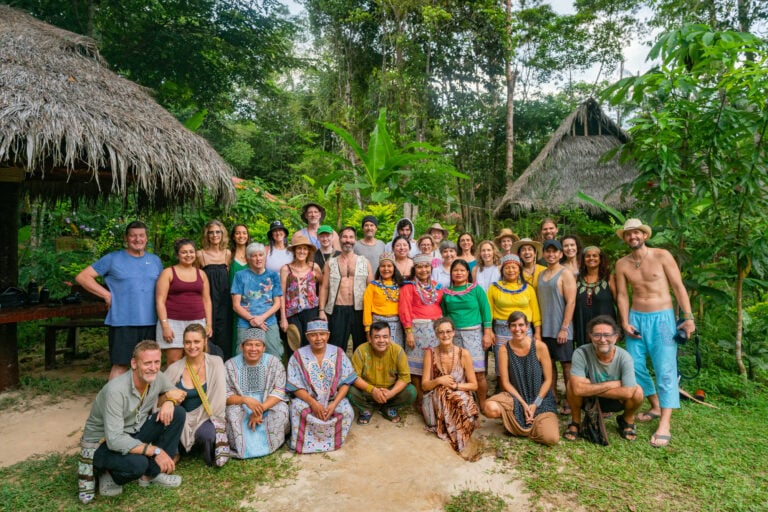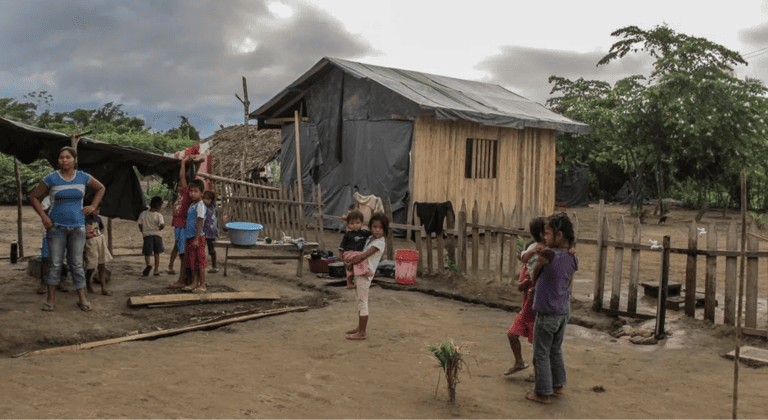Source: drbronner.com
Is it possible to create an ethical psychedelics “industry”…
We are honored to have been mentioned in this poignant and important article from David Bronner, CEO, and Les Szabo, Director of Constructive Capital at Dr. Bronner’s who share their concerns about extractive capitalism and psychedelics. As plant and fungal psychedelics gain more interest from scientific and medical establishments and receive positive attention from the mainstream media, new challenges are arising. The globalization and commodification of psychedelics is a reality that needs to be addressed with much caution and with respect for the indigenous healing traditions that have held these medicines as sacred for millennia.
In her recent thoughtful and well-researched article for Vice, Shayla Love asked, “Is it possible to create an ethical psychedelics company?”
A lot of focus in the psychedelics space over the last few months has centered around the unethical behavior of select companies – David himself has weighed in. Our take is that it’s not only possible to create an ethical psychedelics company, but that such companies already exist. We want to move the discourse towards creating an ethical psychedelics industry as a whole.
As longtime and committed activists in the psychedelic movement, we’ve encountered thoughtful business models and innovative ownership and capitalization structures that, together, present a unique case study on how an industry can move from “extractive capitalism” towards more constructive economic models based on reciprocity, community investment, and trust.
As we envision the future of the industry we want to see, we must first consider who—and what—exactly we are trying to heal with psychedelic medicine. According to the Institute for Health Metrics and Evaluation’s 2017 study, nearly 800 million people worldwide suffer from a mental health issue, roughly one-tenth of the global population. When treating these conditions at the individual level, we sometimes miss larger societal issues that are not typically attributed as causative. But this last year has given us no shortage of opportunities to look deeply at the root causes of the mental health crisis, and who is most affected by it.
The protests that rocked the country in the aftermath of the police murder of George Floyd brought about a renewed reckoning with the deep systemic racism and ongoing trauma that Black people, Indigenous people, and people of color face in this country. Indeed, as a report from the American Psychiatric Association revealed, people from racial and ethnic minority groups not only bear a disproportionately high burden of disability resulting from mental disorders, they are less likely to receive mental health care. And when we consider how societal isolation, economic hardship, and racial injustice were all intensified by Covid-19—especially among underserved populations—it’s clear we’re in the midst of another pandemic that is a symptom of an economic system and a society that is wracked with generational trauma and inequality, and is wildly out of balance with nature.
It’s important to acknowledge that the western medical pharmaceutical-driven approach to mental health is deeply and fundamentally inadequate. Conventional pharmaceutical approaches to the mental health crisis largely seek to treat only symptoms, which keeps people dependent on these medications. Moreover, it has failed to truly deliver the healing that people are most in need of which includes the support of nurturing communities and adequate access to education, food, housing, health care, and other basic and essential needs.
Jumping the S-Curve
Because the mainstream application of psychedelics is in its early days and is just beginning to gain a foothold in the broader mental health industry, there is no better time for leaders and investors committed to true healing to push not only for a revolution in the way we treat mental health issues, but also in the way we scale and finance innovation in the mental health industry as a whole.
Why is this transitional stage of an industry’s life so important?
In her online course, Sustainable Business Strategy, Harvard Business School professor Rebecca Henderson helps us understand the kind of innovation that is possible after a mature industry has reached stagnation by referencing the classic framework of an industry’s lifecycle known as the “S-curve.” One can argue the current mental health industry has reached this stagnation, as there has been little innovation in treatment since the introduction of SSRIs in the early eighties. Use of pharmaceutical psychotropic drugs are at an all-time high, but so are pandemic levels of depression, suicide, and PTSD. If these medications were especially effective, we should be seeing a decline in these conditions, but this is not the case.
“In mature industries firms may be at risk of disruption as new technologies and new business models emerge to satisfy customer needs more effectively. Firms that don’t ‘jump’ the S-curve may be left behind by those who adopt the new ways of doing things,” Henderson explains. To jump the curve, Henderson says, “industries and firms begin by experimenting. If they’re lucky or skillful, they discover entirely new ways of doing things.”
We have a unique opportunity in the psychedelics space because not only are firms experimenting with new medicines, but they are also exploring groundbreaking new treatment modalities and business models that are redefining what mental health care delivery looks like.
But Henderson notes another crucial aspect of an industry’s life cycle in today’s operating environment. Historically, businesses have enjoyed free natural and social capital; they have not had to “pay” for the harmful externalities created by shareholder-centric capitalism. Henderson argues this is starting to change as companies are increasingly being held accountable by their customers, employees, and investors.
For a psychedelics company to succeed in the only way that matters—where all stakeholders benefit, including society at large and the natural world—we believe a company must have a model that addresses reciprocity, equitable access, philanthropy, and environmental stewardship. In other words, they must be willing to embark upon a true cost accounting of the positive and negative impacts they create through their business.










